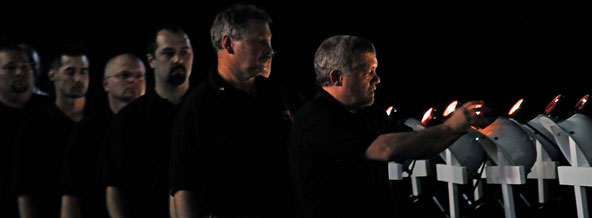CEO convicted of misdemeanor in rare safety prosecution after coal mine explosion kills 29
A rare prosecution of a coal mining executive, following a 2010 explosion in West Virginia that killed 29 people, brought a mixed verdict from a federal jury in Charleston on Thursday.
It acquitted Donald Blankenship, 65, of three felony charges alleging that he deceived regulators and investors, which could have put him in prison for as long as 30 years, according to the New York Times (reg. req.) and the Washington Post (reg. req.).
However, the former Massey Energy Company chief executive was convicted of one misdemeanor, conspiracy to violate mine safety regulations. The maximum penalty for that crime is a year in prison.
Although the result is not what prosecutors had hoped for, Blankenship is the most prominent coal executive in the U.S. ever convicted in a case linked to mining deaths, the Times reports.
The Wall Street Journal (sub. req.) says Blankenship may be the first chief executive of any major U.S. corporation convicted in a workplace-safety case resulting from a deadly industrial accident.
U.S. Attorney Booth Goodwin predicted the verdict in the Southern District of West Virginia case will be a warning to other executives, reports CNN:
“The CEO and chairman of one of America’s largest coal companies now stands convicted,” Goodwin said. “To go from boardroom to prospective incarceration sends a powerful message to executives who would ignore the safety of their workers. It doesn’t matter who you are, how rich you are, how powerful you are, if you violate the laws and gamble with the lives of your workers, you will be held accountable.”
A news release by Goodwin’s office provides more details about the case.
But Kentucky attorney Tony Oppegard, who often represents coal miners, said Blankenship was a target for prosecution only because he was an unusual hands-on executive, the AP reports. “Most CEOs are insulated from liability, in corporate offices in Pittsburgh and New York,” Oppegard said, “and they’re not involved in the day-to-day operations of the mines.”
Meanwhile, a lawyer for Blankenship proclaimed victory and said his client intends to appeal his conviction.
“We are disappointed, but not as disappointed as we could have been,” attorney William Taylor III told the Times.
Sentencing for Blankenship will take place next year.
Another former Massey Energy executive, David Hughart, was sentenced to 42 months in federal prison in 2013, after pleading guilty to charges of conspiring to impede inspectors and violate mine health and safety laws, as the State Journal reported at the time.
The owner of the mine agreed in 2011 to pay a $209 million penalty, roughly 40 times as much as any prior fine over a mine disaster, an earlier Washington Post (reg. req.) story reported.
The $209 million includes payments of $1.5 million each to two survivors and the families of the 29 who died.

Miners light helmets to commemorate their 29 colleagues killed in an explosion in 2010. Photo courtesy of Steven Wayne Rotsch.
Related coverage:
ABA Journal (2012): “King Coal’s Violent Reign: Century-Old Labor Strife Still Raises Constitutional Questions”
Charleston Gazette-Mail: “Don Blankenship On Trial”
Mother Jones: “The Fall of King Coal”
Wall Street Journal (sub. req.): “Jury Appears Deadlocked in Trial of Former Massey CEO Blankenship”
See also:
Associated Press: “5 Years After Upper Big Branch Coal Mine Blast, Explosion Risks Persist”
Charleston Gazette-Mail: “Timeline of events leading to Blankenship verdict”



